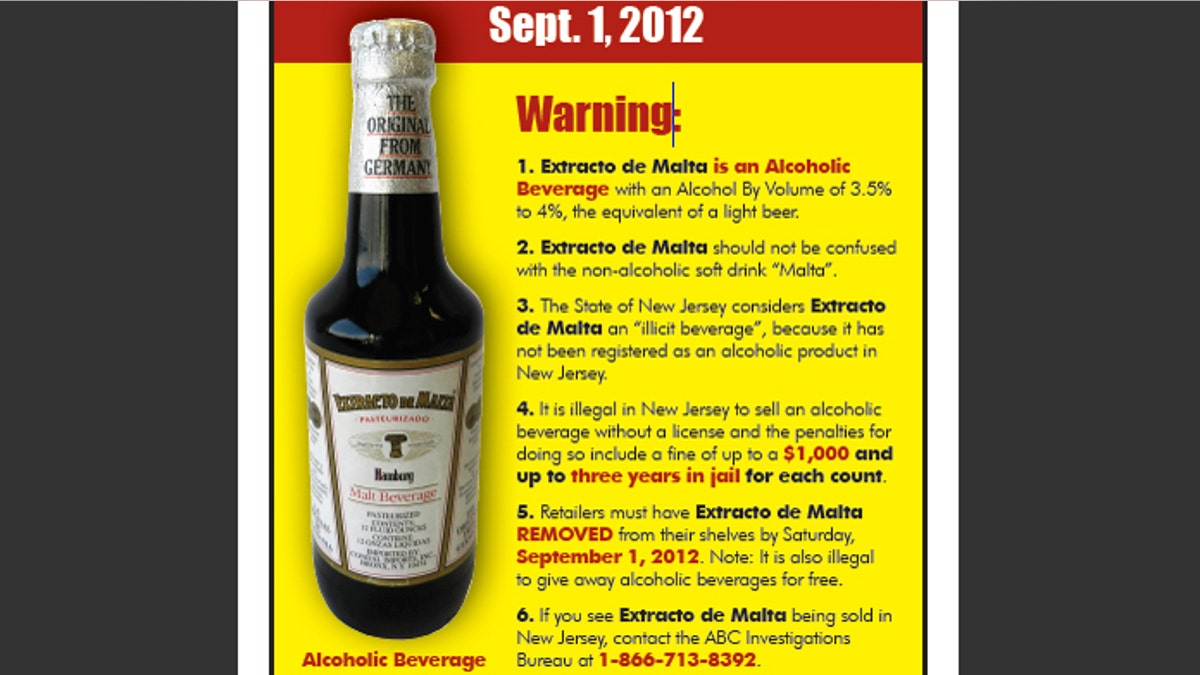
Malta has always been a popular childhood soft drink, particularly for those from the Caribbean. It's sweet and dark and fizzy, much like a cold can of beer.
But it's not supposed to get you drunk.
But in New Jersey, official are ordering bodegas to pull Extracto de Malta from their shelves before September 1 or store owners selling the beverage may face fines of up to $1,000 and three years in jail for selling alcohol without a license.
Evidently, that brand of malta was making people inebriated, unbeknownst to them.
The drink is commonly perched on shelves in stores catering to Latinos alongside the popular Malta Goya drink and can be easily purchased by children, warn officials. Officers from New Jersey’s Consumer Affairs have been contacting bodegas and are finding that the drink is widespread and popular. It is described on beer blogs as having a caramel like smell and a subtly sweet taste balanced by a bitterness.
The state’s division of Alcohol and Beverage Control reports that Extracto de Malta is being sold in stores not licensed to sell alcoholic drinks and the labeling does not properly informing consumers that the drink has the same alcoholic content as a light beer.
They became aware of the issue when a New Jersey transit bus driver tested positive for alcohol during a routine check. He denied drinking and investigators traced the alcohol back to a bottle of Extracto de Malta, which he had consumed unaware that there was alcohol in it.
“These bodegas, since they are not licensed to sell alcohol, they are not in the habit of carding people who buy drinks there,” said Zach Hosseini, spokesperson for New Jersey’s Alcohol and Beverage Control Division. “This stuff is being sold next to a Diet Coke and there is no way of knowing what aged person is buying this product.”
Condal Distributors in the Bronx imported the beverage and the company’s owner, Nelson Fernandez, and a salesman, Elbio Fanas, have been charged with selling alcohol without a license. They have a hearing next month in Superior court in Union County, NJ, according to local paper The Record of Bergen County.
A call to Fernandez was not immediately returned.
In New Jersey, distributors must be licensed to sell alcohol to other licensed alcohol establishments. Licensed wholesale distributors collect taxes on each case they sell. Extracto de Malta would deliver 27 cents for state alcohol tax and $1.30 for federal excise tax. However, the drink was sold legally as an alcoholic beverage within New York State.
“There is a regulatory structure that our licensed bars and restaurants and liquor stores have to abide by," says Hosseini. "And these guys sidestepped it.”








































